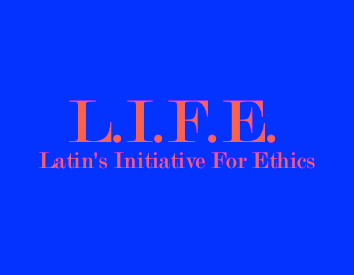Latin’s Initiative for Ethics (LIFE) and Latin in Rwanda are honored to host an evening with internationally acclaimed humanitarian and author Lieutenant-General, the Honourable Roméo Dallaire (Ret’d.).
Friday, September 18
7 p.m.
Wrigley Theatre
Latin School of Chicago
59 W. North Blvd.
On April 6th, 1994, genocide began in Rwanda. It was the greatest slaughter of human beings since the Holocaust. The majority of the 800,000 or so who were killed died of machete wounds. Many would have known their killers. The survivors and the perpetrators continue to live next to one another.
I was the commander of the UN Assistance Mission for Rwanda at the time of the genocide. I promised never to let the memory of the Rwandan genocide die. I felt it was my duty having witnessed it, and having stayed to witness it, that I had to talk about it and keep it going.
Too many parties have focused on pointing the finger at others, beyond the perpetrators, as the scapegoats for our common failure. Some say the example of Rwanda proves that the UN is an irrelevant, corrupt, decadent institution that has outlived its usefulness or even its ability to conduct conflict resolution. Others have blamed the Permanent Five of the SC, especially the US and France, for failing to see beyond their own national self-interest to lead or even support international intervention to stop the genocide. Some have the media for not telling the story, the NGOs for not reacting quickly enough, the peacekeepers for not showing more resolve, and myself for failing in my mission.
There is no doubt that the toxic ethnic extremism that infected Rwanda was a deep-rooted and formidable foe, built from colonial discrimination and exclusion, personal vendettas, refugee life, envy, racism, power plays, coups d’etat and the deep rifts of civil war. In Rwanda both sides of the civil war fostered extremism. Together these extremists created the climate in which a slaughter of an entire ethnicity could be dreamed up—an attempt to annihilate every Tutsi who had a claim on Rwanda, carried out by Rwandans on Rwandans.
Still, at its heart, the Rwandan story is the story of the failure of humanity to heed a call for help from an endangered people. The international community, of which the UN is only a symbol, failed to move beyond self-interest for the sake of Rwanda. While most nations agreed that something should be done, they all had an excuse why they should not be the ones to do it. As a result, the UN was denied the political will and material means to prevent tragedy.
When I think about the consequences of the Rwandan genocide, I think first of all of those who died an agonizing death from machete wounds inside hundreds of sweltering churches, chapels and missions where they’d gone to seek God’s protection and ended instead in the arms of Lucifer. I think of the more than 300,000 children who were killed and of those children who became killers in a perversion of any culture’s idea of childhood. Then I think of the children who survived, orphaned by the genocide and the ongoing conflict in the region—since 1994, they have effectively abandoned by us as we abandoned their parents in the killing fields of Rwanda.
In my writings and public speeches have often asked, “Are all humans human? Or are some more human than others?” No matter how idealistic the aim sounds, this new century must become the Century of Humanity, when we as human beings rise above race, creed, colour, religion, and national self-interest and put the good of humanity above the good of our own tribe. For the sake of the children and our future.

























































